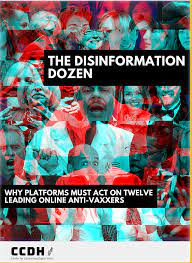Ilya Borodin, 18, according to his family and coaches, is a born swimmer. He belongs to a sport family; his father plays volleyball and practices shooting. His mother excelled in basketball. Inspired by Ilya, his younger brother also trains long hours in the water, dreaming of Olympic gold medals, just like Ilya does.
Ilya Borodin has been swimming since the age of seven.
His singular focus was the 2020 Olympic gold, making his family and country
proud. When watching earlier Olympics on TV, he imagined himself on the podium,
a gold medal around his neck, the Russian anthem playing, and the Russian flag
flying high.
Since 2013, when Tokyo was selected as the venue for
the 2020 Olympics, Ilya had often Googled Tokyo and Japan. Would it be too hot
in July for the swimmers? What sort of food can one eat in Japan? How expensive
is Tokyo? As a member of the strong Russian contingent, he didn’t need to
worry. He had the ability to get gold medals, and the first place where he
would get them was special.
*****
In December 2017, Ilya Borodin spent a few sleepless
nights. Most Russian athletes did. For its state sponsored doping programme,
the IOC (International Olympic Committee) suspended Russia. Ilya was clean, many
Russian athletes were clean, but what happens if Russia itself is banned?
Over the next two years, the Russian athletes lived on
hope. Surely Russia was a superpower and it was difficult to imagine no
Russians in the Olympic Games. The World Anti-Doping Agency (WADA) completed
its investigations in 2019. WADA found that the Russian authorities had
manipulated the doping data to protect athletes who had participated in Russia’s
state-sponsored doping scheme. In December 2019, WADA banned Russia for four years,
sending Ilya Borodin and others into chronic depression. In a few weeks, the
coronavirus pandemic started. Was Russia so lucky that the 2020 Olympics would
be cancelled altogether, making the doping ban irrelevant? Ilya wanted the
Olympics to happen, with Russia an active participant.
Russia appealed. Meanwhile the Tokyo Olympics was
postponed to summer 2021. In December 2020, the ‘international court of
arbitration for sport’ gave its verdict. The ban on Russia remained, but clean
athletes like Ilya Borodin would be allowed to take part as “neutral athletes”.
It was agreed they would be from “ROC”.
ROC is not the Republic of Congo, but the Russian Olympic Committee. The court
said ROC can be used, but not its
full form, because it has the word Russian in it. Neither Russia’s flag nor
anthem can be used anywhere.
This week, when an ROC neutral athlete wins a medal,
Pyotr Tchaikovsky’s Piano Concerto No.1 will be heard in place of the Russian
anthem.
*****
Ilya Borodin got back to his winning ways. In the 400 m
individual medley, he was the Russian champion in 2020 as well as 2021. Before
the Olympics, he won gold at Budapest, winning the European championship. His
timing matched with Michael Phelps’ when Phelps was his age.
In Russia, supply of vaccines far exceeds demand. Like
most Russians, Ilya didn’t know what was more dangerous - taking two shots of Sputnik
V or not taking them. He decided not to take them.
Vladivostok is seven times zones and nine hours flying
away from Moscow. Japan is only 1,000 km away from here. For acclimatization,
Russia decided to take all the ROC athletes to Vladivostok for a few days. They
all lived in a bubble. Ilya was wearing a mask even in the hotel lift.
His first test was negative, just like everybody else’s.
He tested positive the next day. Absolutely no symptoms. He was in his best physical
form. It must be a false positive, everyone thought. Over the next two days,
one after another, he did three tests. All of them were positive.
The large ROC delegation left for Tokyo, with the
exception of Ilya Borodin. The doctor checked him, but couldn’t prescribe any
medicine. Ilya is now isolated in his Vladivostok hotel room. Will he watch the
swimming races on TV, he was asked. He couldn’t answer that question.
Ravi










